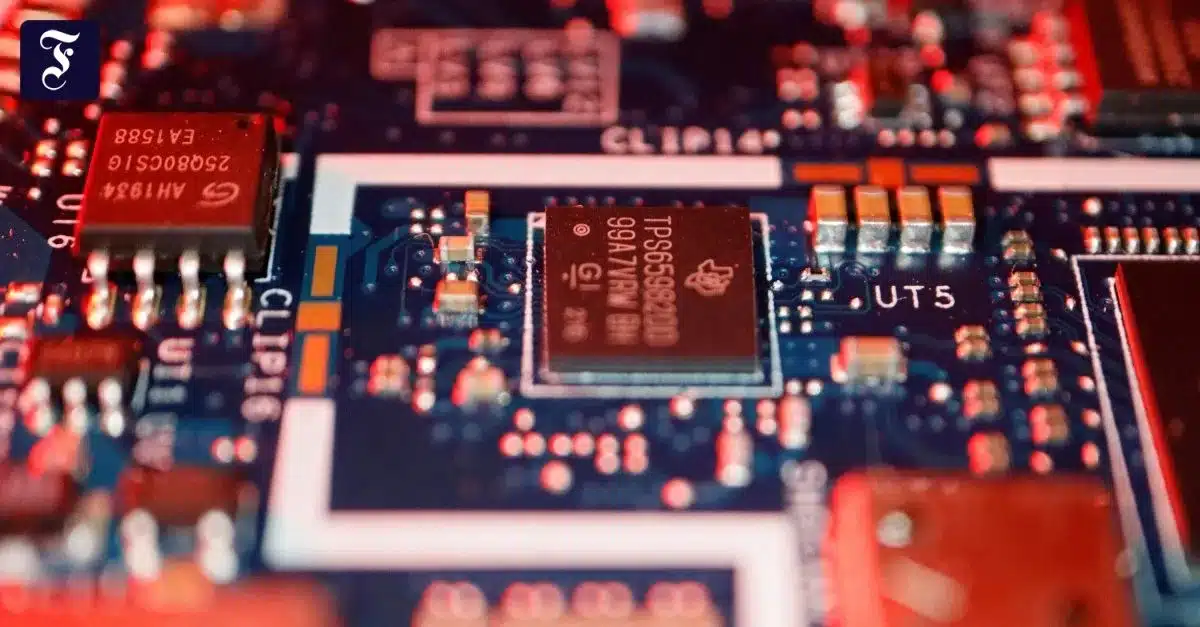Peking intends to ban chips from American manufacturers from public communications networks and data centers. Over the next few years, all central switching points in the networks will be equipped with Chinese computing and storage components. The responsible Ministry of Industry and Information Technology set 2027 as the enforcement year for state-owned companies such as China Mobile.
As the “Wall Street Journal” reported on Friday, this will particularly affect the US chip manufacturers Intel and AMD. Tens of billions of their processors are based on Chinese technology – from PCs to network computers (servers). No wonder: Intel and AMD are the two largest providers of so-called central processing units.
These CPUs are essentially the brains of the computers. A ban in China would hit both companies hard. On Friday, the prices of Intel and AMD shares on the stock exchange fell by around 1.5 percent compared to the previous day. The prices of shares in China Mobile and China Telecom also lost around one percent in value.
With this step, the Chinese are responding to the attacks and sanctions by the United States in the so-called chip war. Washington has been keeping Chinese telecom suppliers like Huawei out of its networks for years due to security concerns. Americans are also calling on political allies and trading partners around the world to do the same – with mixed success so far.
—
— (–)
—
— (–)
The Americans have already drawn up their own sanctions lists for the Western chip industry. They prohibit manufacturers and suppliers from delivering certain products or special equipment to the Middle Kingdom under threat of punishment. The last time the Americans wrote such lists was during the Cold War. China is not taking this lying down.
Strict procurement guidelines
A few weeks ago, Beijing made it clear that it would ban key Western technology from its networks, be it software programs from Microsoft or laptop computers from Dell. Devices and services should be replaced by domestic offerings. In both China and America, buyers of state institutions and those corporations that are classified as relevant to national security already have to follow certain procurement guidelines.
Since chips are the central technical building blocks for a modern industry and society, China set out to build its own semiconductor industry at the beginning of the last decade with as many companies and closed supply chains as possible. So far, the equivalent of around 150 billion euros in state aid has flowed into this. The Americans have put together subsidy packages of a similar size. Their goal: to become more independent from Asia’s chip industry.
On the other hand, the Chinese are already subjecting all computers with American chips to special checks in order to rule out as best as possible that technical backdoors are built into the devices through which sensitive data could be accessed. In addition, the USA is currently pulling a company like the Taiwanese TSMC Group closer to itself. It is expected that China will not be able to invade and politically bind the independent island republic until 2027 at the earliest. TSMC is currently the industry leader in the global chip industry.




